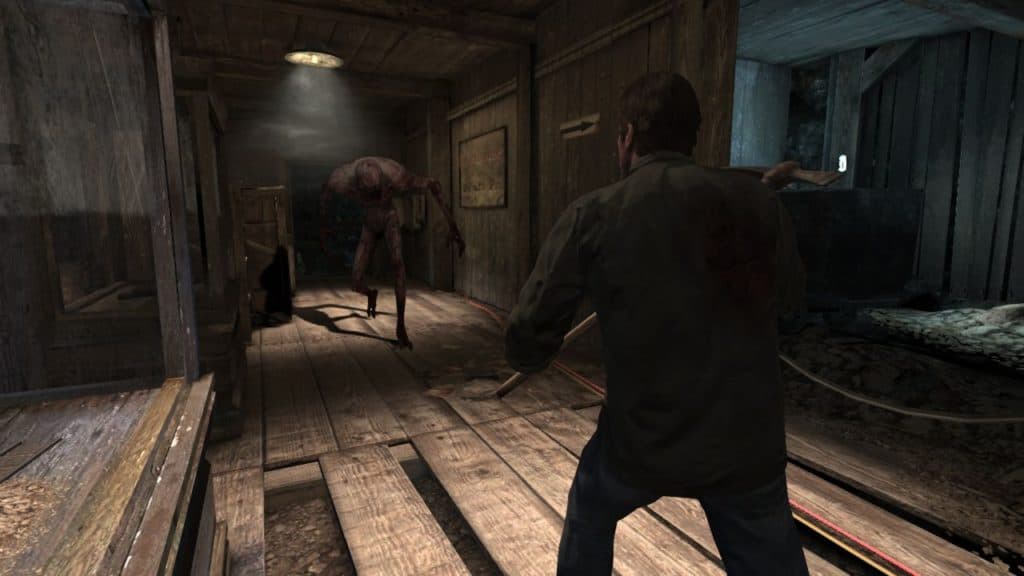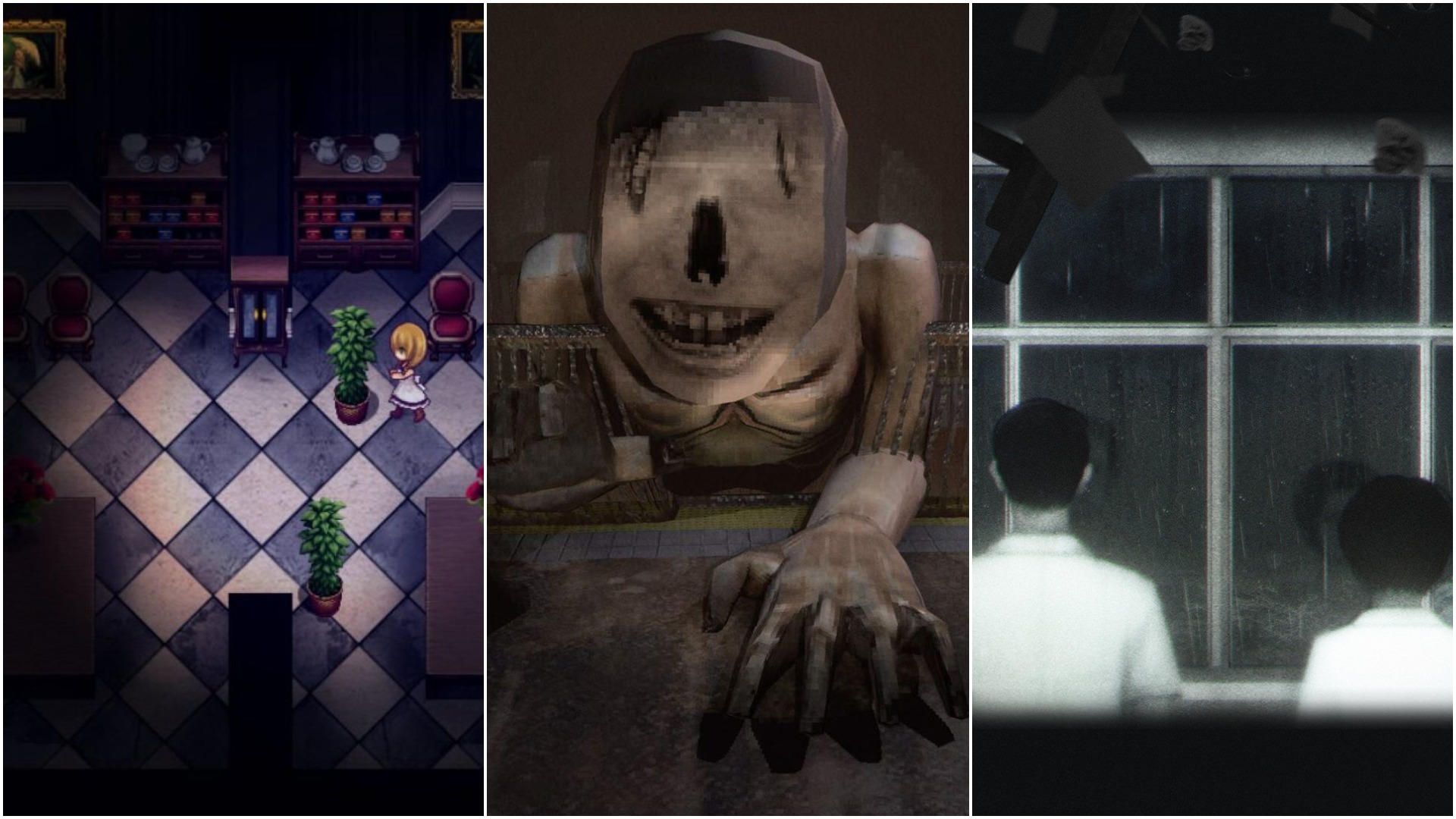

But now? Any discussion of the series needs to be preceded by some sort of disclaimer, just to remind people you’re talking about the good Silent Hill games. I loved those first few games, and I used to get a particular kick out of introducing people to Silent Hill 2, which I maintain is the absolute peak of the series. Now, four “proper” Silent Hill titles later, there’s not much hope of salvaging the series.

When Konami (allegedly) disbanded Team Silent to hand the series over to Western developers, it lost not just the skills but the insight that made Silent Hill shine. Instead, as explained in Silent Hill 2’s behind-the-scenes documentary, they operated on the principle of repulsion and attraction, so even when you’re standing still there’s something off that you can’t quite put your finger on. When it came to creating the locations, they didn’t just smear a bit of blood and rust about the place, though you could be forgiven for thinking that. Their meticulous approach to environment and character design was instrumental to the series’s success. It’s no coincidence that the “good” Silent Hill games were created by Team Silent, who understood the value of keeping the player on edge.

It wasn’t the attention of some colossal clawed beast that tied your stomach in knots it was stepping into an elevator and seeing a button that definitely wasn’t there before, discovering your safe room was no longer safe, or seeing a dimly lit figure watch you impassively through a set of bars. What really made Silent Hill and its first three sequels stand out was the cloying sense of unease that kicked in every time you picked up the joypad. Silent Hill, on the other hand, has done anything but thus, the later entries have singularly failed to impress. Resident Evil has, however, persisted largely because of its willingness to reinvent itself. One thing that made Silent Hill (and then Silent Hill 2) so appealing was that it was so unlike anything the Resident Evil series had to offer. That’s very much the tack Silent Hill: Homecoming and Silent Hill: Downpour seem to have taken, but barring the town itself, that framework has become more of a horror game staple. It’s as if someone sat down with the first few titles, whisked up a checklist - a guilt-ridden or desperate protagonist, a shadowy otherworld, vaguely humanoid monsters, a tenuous link to the titular town and so forth - and figured ticking those boxes was enough. It’s not just that there hasn’t been a good Silent Hill sequel in 17 years, but later entries in the series also betray a Silent-Hill-by-the-numbers approach. But the more I think about it, the more I feel like it’s time to let this survival horror series rest. As a longtime Silent Hill fan, I should be doing somersaults over the two new rumored Silent Hill games.


 0 kommentar(er)
0 kommentar(er)
